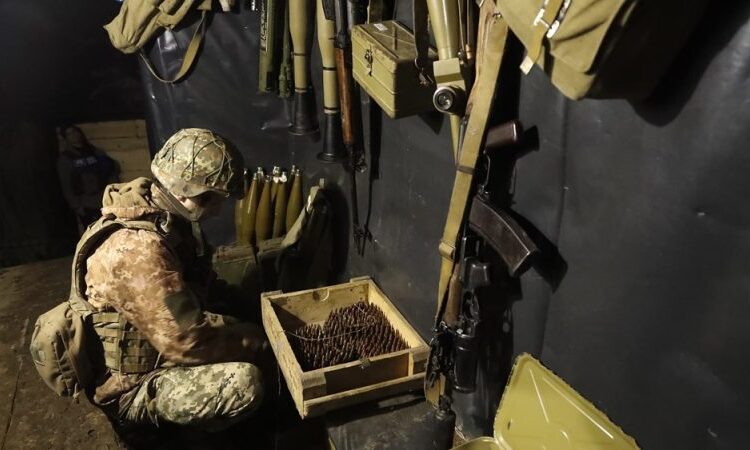
The European Parliament approved a resolution Wednesday (28 February) calling on the European Investment Bank (EIB) to repeal restrictions on financing ammunition and weapons production, putting pressure on the EU’s multibillion lending arm to ramp up security-related expenditure as Russia’s war in Ukraine enters its third year.
“[The Parliament] emphasises the need to make the most effective use of all the instruments at the EIB’s disposal [and] calls on the EIB to enhance its support… to the European defence industry,” reads the Greens/EFA-sponsored resolution, which passed by 455 votes to 64, with 26 abstentions.
An amendment added to the bill by the liberal Renew group also explicitly urged the EIB to overhaul its investment eligibility criteria “so that ammunition and military equipment that go beyond dual-use application are no longer excluded from EIB financing”.
The EIB’s current mandate limits the range of permissible defence-related investments to so-called “dual-use” technologies, which can be used for civilian and military purposes. According to the Bank’s lending criteria, most of the technology’s expected future revenue must derive from its civilian use.
This also means the bank is currently explicitly prohibited from investing directly in ammunition, weapons, and “core military and police infrastructure”.
The vote was held on the same day that the Luxembourg-based institution’s recently appointed president, Nadia Calviño, told a plenary session of the European Parliament that the EIB would “step up” its “support for European industry in the areas of security and defence”.
Calviño also told MEPs that the EIB will “engage” with the European Commission and other stakeholders on the “definition and scope” of dual-use technologies.
On Friday, she had committed to report back to the bloc’s 27 finance ministers – who have recently been urged by their defence counterparts to tackle investment roadblocks – “on the status of these ongoing discussions” in two months.
The bank will also attempt to “accelerate” the deployment of the €6 billion in funds that remain available under the bank’s 2022 Strategic Europe Security Initiative (SESI), of which €2 billion has already been invested in drone technology, cybersecurity, and border security.
In her brief, European Commission President Ursula von der Leyen told MEPs on Wednesday that she was “very encouraged by the words of President Calviño that the EIB is ready to do more to contribute to joint projects that boost the European defence industry”.
“Today’s vote in the European Parliament’s plenary […] is yet another sign of where the political wind is blowing — and with good reason,” Martin Wilberg, head of defence policy at Kreab, a Brussels-based policy consultancy, told Euractiv.
“Slowly but surely, EU policymakers across the key institutions are waking up to the [defence] industry’s needs,” he added.
However, Philippe Lamberts, co-president of the Greens/EFA European parliamentary group, told Euractiv that Europe’s defence-related financing woes were mostly due to a lack of coordination rather than a scarcity of funds.
“On defence, it’s obvious that Europe has some efforts to make,” Lamberts said.
“But frankly speaking, if I look at the amounts that we spend on defence, this is not the area where the most additional money is needed. Actually, what we need to do is spend the money much more wisely and much more together.”
[Edited by Anna Brunetti/Alice Taylor]







